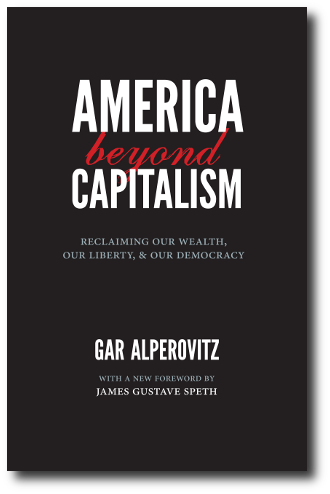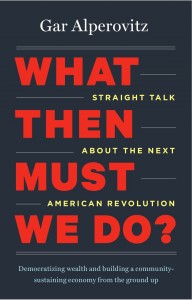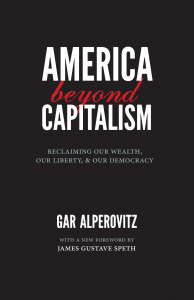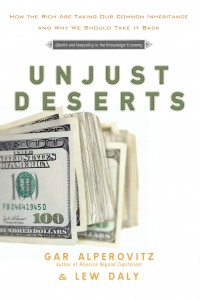 “Building a Sustainable and Desirable Economy-in-Society-in-Nature” is a report synthesizing some of the best current thinking around the intersection of economic growth and ecological crisis, prepared under the auspices of the Sustainable Development in the 21st century (SD21) project as a part of the lead up to the upcoming United Nations Conference on Sustainable Development (RIO+20). The report, coauthored by Robert Costanza, Gar Alperovitz, Herman E. Daly, Joshua Farley, Carol Franco, Tim Jackson, Ida Kubiszewski, Juliet Schor, and Peter Victor, is a call to come to terms with the impossibility of infinite economic growth on a finite planet, and to imagine (and build) a real alternative to the business as usual system before it’s too late. As the report’s introduction puts it:
“Building a Sustainable and Desirable Economy-in-Society-in-Nature” is a report synthesizing some of the best current thinking around the intersection of economic growth and ecological crisis, prepared under the auspices of the Sustainable Development in the 21st century (SD21) project as a part of the lead up to the upcoming United Nations Conference on Sustainable Development (RIO+20). The report, coauthored by Robert Costanza, Gar Alperovitz, Herman E. Daly, Joshua Farley, Carol Franco, Tim Jackson, Ida Kubiszewski, Juliet Schor, and Peter Victor, is a call to come to terms with the impossibility of infinite economic growth on a finite planet, and to imagine (and build) a real alternative to the business as usual system before it’s too late. As the report’s introduction puts it:
The world has changed dramatically. We no longer live in a world relatively empty of humans and their artifacts. We now live in the “Anthropocene,” era in a full world where humans are dramatically altering our ecological life-support system. Our traditional economic concepts and models were developed in an empty world. If we are to create sustainable prosperity, if we seek “improved human well-being and social equity, while significantly reducing environmental risks and ecological scarcities,” we are going to need a new vision of the economy and its relationship to the rest of the world that is better adapted to the new conditions we face. We are going to need an economics that respects planetary boundaries, that recognizes the dependence of human well-being on social relations and fairness, and that recognizes that the ultimate goal is real, sustainable human well-being, not merely growth of material consumption. This new economics recognizes that the economy is embedded in a society and culture that are themselves embedded in an ecological life-support system, and that the economy cannot grow forever on this finite planet.
This report is a synthesis of ideas about what this new economy-in-society-in-nature could look like and how we might get there. Most of the ideas presented here are not new. The coauthors of this report have published them in various forms over the last several decades, and many others have expressed similar ideas in venues too numerous to mention.
What is new is the timing and the situation. The time has come when we must make a transition. We have no choice. Our present path is clearly unsustainable. As Paul Raskin has said, “Contrary to the conventional wisdom, it is business as usual that is the utopian fantasy; forging a new vision is the pragmatic necessity”. But we do have a choice about how to make the transition and what the new state of the world will be. We can engage in a global dialogue to envision “the future we want,” the theme of Rio+20, and then devise an adaptive strategy to get us there, or we can allow the current system to collapse and rebuild from a much worse starting point. We obviously argue for the former strategy.
Download the report: Building a Sustainable and Desirable Economy-in-Society-in-Nature
 AMERICA BEYOND CAPITALISM
AMERICA BEYOND CAPITALISM



 Agenda
Agenda  Posterboard
Posterboard 